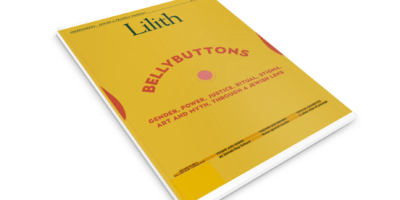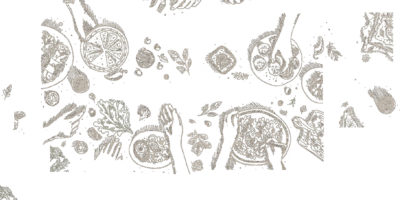
A Forgotten Novel of Intermarriage That Feels Fresh
What greater pleasure is there than stumbling across a forgotten woman novelist and discovering that her work is actually good? After Lilith published Josh Lambert’s wonderful piece on Emma Wolf (Spring 2021), an upper–class Jewish novelist from the San Francisco of a century ago, a podcast called “Lost Ladies of Lit” asked me to read a Wolf novel (about intermarriage, no less!) and chat about it with them.
Other Things Being Equal (Wayne State University Press with a new introduction by Barbara Cantalupo, $22.99) was a bestseller of its time—and it’s easy to see why. Readable, witty and humane, it tells the story of Ruth, the adored only child of doting parents, who falls for her mother’s gentile (and gentle) doctor when he cures the poor older lady’s hysteria, calming her nerves with his hypnotic presence.
Through their friendship, Ruth teaches Dr. Kemp to be more thoughtful and less cavalier, while he gets her invested in doing good works beyond her safe social circle, and in realizing her moral capability and courage, she falls in love, most charmingly. Take this passage:
“Going in for philanthropy, Miss Levice?”
“No; going out for it, thank you;” and she put her hand into his
outstretched one. She watched him step into his carriage; he turned
and raised his hat again,—a trifling circumstance that Ruth dwelt upon
with pleasure; a second glance always presupposes an interested first.
It’s all very “meet cute,” with lots of upturned glances. The only obstacle to their union, then, is her father’s very real disapproval: not of the virtue of Ruth’s bashert, but of the life they will lead, intermarried. His worries—that the alienation of their choice will bring hardship on their union—are presented sympathetically even if Wolf’s own feeling is that love conquers all.
Wolf, though writing in the vein of Edith Wharton, Jane Austen, and Henry James, doesn’t quite have their scope. At her best, Wharton (antisemitic streak and all) wrote about snobby Old New York in a way that felt like a meditation on society itself. Wolf’s palette is smaller, with a tiny cast of characters and intimate world, and her subject matter is less about power and more about a small, but poignant conflict between two sections of the heart: romantic love and familial loyalty.
And yet the lightness of her writing, the wry humorous asides, are a revelation for those just discovering her, like me. More importantly, the relevance of Wolf’s forgotten Jewish world, too—those tony San Francisco Jews who mingle with Christians socially but fear intermarriage and social prejudice—is prescient. I felt like I could have been reading about my own grandparents and parents, half a century later—or even about certain segments of Jewish life in today’s New York.





